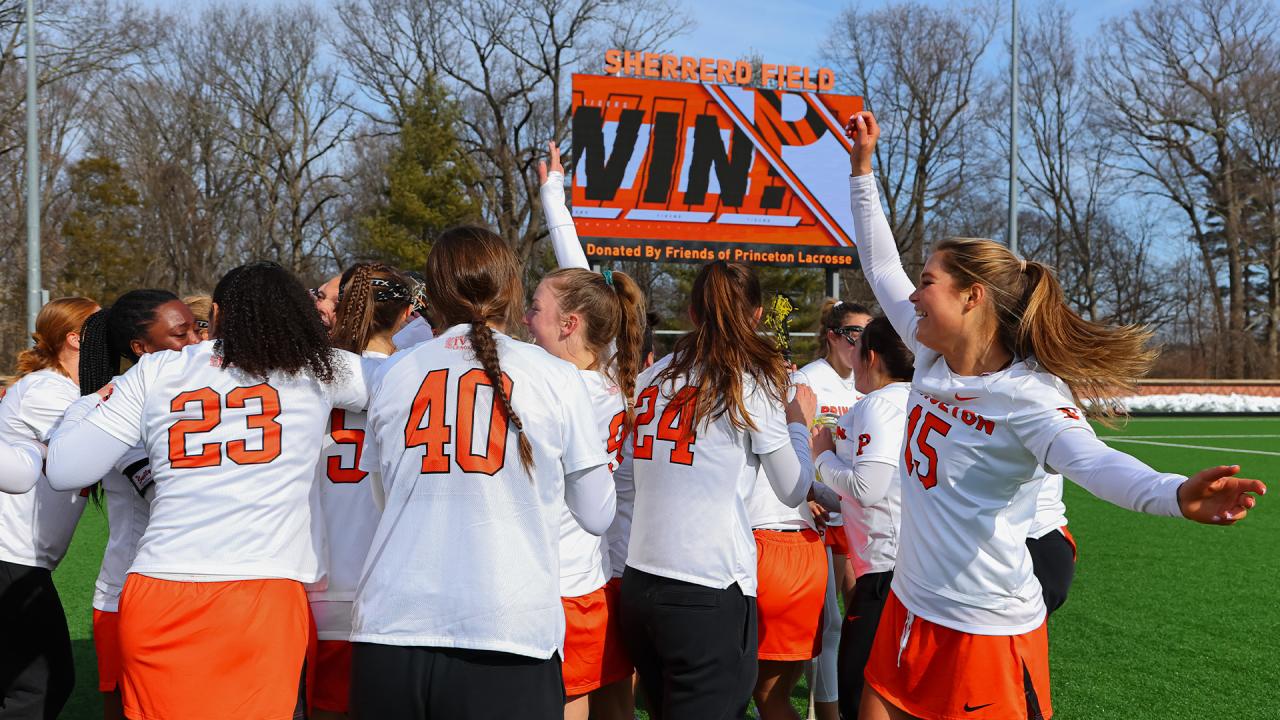Dora and MacDonald got to see one another in new flights at the World Lacrosse U20 Women’s World Championship last summer in Hong Kong, China — on opposing teams’ scouting reports. Dora won gold with the U.S., while MacDonald starred and took silver with Canada.
“It was interesting to watch from an opposing perspective and try and understand why she is feeding the ball,” MacDonald said.
Dora prefers to be on the same team but says the new perspective paid off when the duo reunited.
“She’s one of my best friends, so in the back of my mind, I'm like, ‘Oh, don't go too hard on her,’” Dora said. “But the two of us having that experience helps in leadership, playing behind the cage and as offensive quarterbacks.”
Despite the international experience and veteran leadership returning on both ends of the field, including 2024 Ivy League Goalkeeper of the Year Amelia Hughes, the Tigers found themselves in third place in the preseason conference poll.
“Nobody was talking about our experience,” Cook said. “We have this underdog mentality flying under the radar piece. As a coach, you always know how kids are developing, but maybe not everybody else does.”
Cook saw it developing over the last three years. A 16-14 win at Loyola served as an early confidence booster, and a 20-6 drubbing of Harvard on March 8 made another statement.
People see it now when they watch Princeton, but the Tigers know that’s a double-edged sword.
“People are going to compete against us and want to take us down,” Dora said. “We have to keep playing hard and continue to do what we do well without feeding into what other teams want to make us do. We’re playing our game and focusing on the plan the coaches have for us.”
But part of the plan — and the vision — is to reclaim their annual spot atop the conference.
“It’s our time to prove that the Ivy League is ours again,” MacDonald said. “We need to come out firing on all cylinders, and everyone else bought into that idea.”
That’s the short-term goal, but the Tigers are also building for the long haul with this trio of attackers laying a new foundation.
“The three of them have perfected where they are in the zone and how to move to move the ball, which is great for the younger kids to watch,” Maurer said. “I can be like, ‘Watch what Haven does when she catches the ball. Watch where her eyes and hands are. Try to see what she is seeing.’ It helps our younger players and defense so that when we need to get in a zone, we’ve prepared the team at a high level to communicate what we’re seeing and tighten up gaps.”
Speaking of communication, Dora gets an occasional message from a familiar name. She now has Sears’ jersey number, but the former Tigers All-American has her digits, too, and bridges the gap between past and present.
“A few times she’s texted me and said, ‘Keep doing what you’re doing. It’s fun to watch you,’” Dora said. “It’s a good feeling. She left big shoes to fill, and I’m doing everything in my power to show up every single day.”



























































